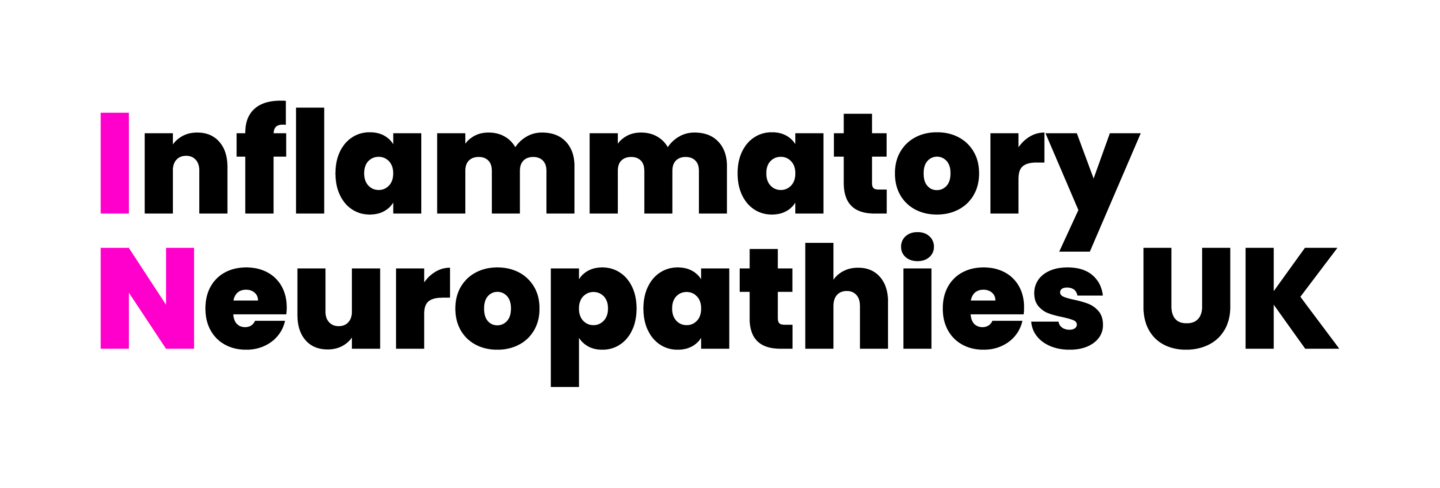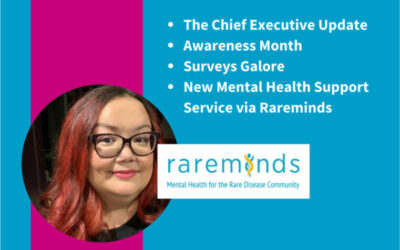The last few weeks we have been publishing blogs about CIDP, and in this week’s post we are looking at the impact of CIDP.
Impact of the condition
CIDP can be a life-alterating condition that impacts on many aspects of your life. Without proper treatment (and in some cases even with treatment) people can be impacted by weakness, numbness, and fatigue. Getting around can be difficult, and some of the things that you do every day can be impacted due to loss of felling and difficulty undertaking tasks like doing up a button. There are a number of different ways that CIDP impacts people. Not everyone will be impacted in the same way, and many people will be able to manage their condition well. So, please don’t read this blog as things that will happen to you, but we have tried to cover everything so people can understand the many ways CIDP can impact their life.
Impact of diagnosis
Most people won’t have heard about CIDP until a doctor or neurologist mentions it. Receiving a diagnosis can be one of the most difficult things any of us have to cope with. Often, we aren’t really listening as things are explained to us, the shock of an unknown condition can lead to lots of questions, and sometimes people aren’t given more information than the name CIDP and a technical description. The shock of diagnosis can be difficult, and it can lead us to go down lots of online searches to find out more. ‘Dr Google’ can be quite a dangerous rabbit hole, unless of course it brough you here! For some people, however, a diagnosis can be enlightening, especially finding out why certain things may be happening to you. However, a diagnosis is only as good as the action that is taken afterwards.
The physical impact of CIDP
Obviously, the biggest impact of CIDP to most people will be the physical aspect, especially when it first happens and as you learn to cope with physical issues. Some people will have issues with mobility, others with their fine motor skills like holding a pen or picking up small items. Some people may experience pain, and this can be debilitating. Controlling physical symptoms, and manging any ongoing issues can be vital to living with CIDP.
The emotional impact of CIDP
Often overlooked are the emotional aspects of CIDP. Coping with any significant change to our lives can be difficult, and this is no different with CIDP. Some people are able to manage well, while others will feel sad, depressed, anxious, scared, or lonely. There is no right or wrong, and there is nothing wrong with feeling any of these emotions. Asking for help can be difficult, but reaching out is vital. Trying to deal with emotional needs on our own is difficult, so it’s important that you find the right support for you. This could be family or friends, it could be us at GAIN, or it could be someone in your local community. We find that people benefit from talking to someone else who has gone through what they are going through, so peer support form one of our volunteers, or reaching out to our online community can be super helpful. Don’t underestimate the impact of your emotional health on your overall wellbeing, and ask for help if you think there is even a tiny chance it could help.
The social impact of CIDP
People often tell us that as no one has heard of CIDP before, then their friends and family don’t really understand it. This can lead to loss of friendships and problems with relationships. We often hear that people really know who their friends are after a diagnosis, but finding ways to communicate about your CIDP and what this means can help. Sharing a poster of factsheet can help. Finding support within the Inflammatory Neuropathies Community can be a great way of finding social interaction, but equally reaching out within your local community can be equally good. Often people stop doing what they did before, and while this might be right for some people, it can lead to social isolation for others. Find what works for you, but don’t let CIDP impact the social side of your life completely. Connections are vital.
The financial impact of CIDP
Living with a long-term condition or an impairment or disability tends to be more expensive that living without one, as unfair as that is. This can be due to the need for different housing, adaptations, transport, or even having the heating on for longer. While financial support is available through things like the Personal Independence Payment (PIP) in England, Wales and Northern Ireland, and the Adult Disability Payment in Scotland, these are currently under threat due to changes in welfare and benefits in the UK. On top of this, people with CIDP’s ability to work can be impacted, as well as those around them who may take on some caring duties. This obviously can impact on household income. If you need any help with this aspect of CIDP, then reach out to GAIN and let’s see if we can help.
Support with the impact of CIDP
As with all aspects of CIDP, GAIN is here to help you deal with these impacts. To find out how we can help you, please feel free to look around the website at www.gaincharity.org.uk, give us a ring on 01529 469910, or email us at office@gaincharity.org.uk. We will try to do whatever we can, or find someone who can help if we can’t.




